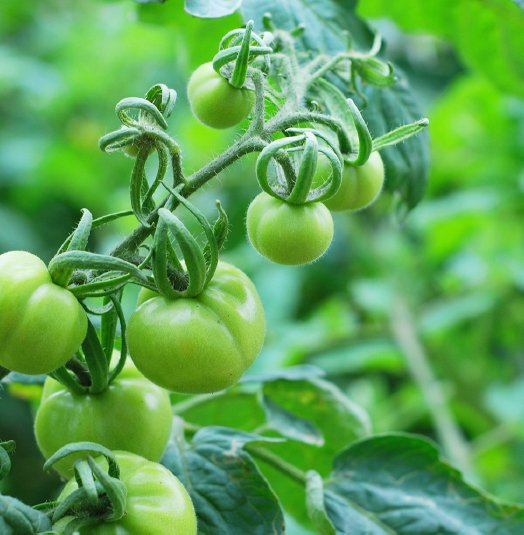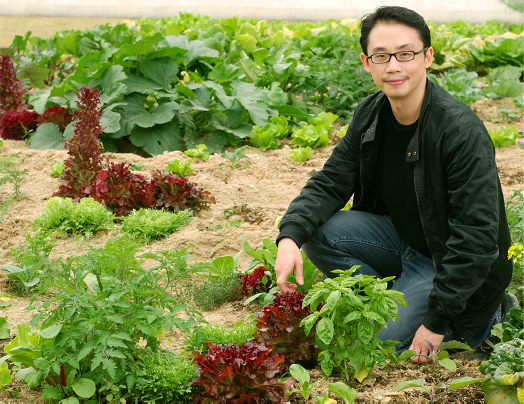CUHK’s Splendid Rooftop Farm
One of the lesser-known gems of the University is the rooftop garden at AITB (An Integrated Teaching Building). The purpose-built rooftop garden has been around since 2012, and staff and students of the School of Architecture have been growing crops there since. But in October 2014, a Rooftop Cultivation Project was launched to better organize the farming activities and use them to promote the benefits of rooftop cultivation.
Rooftop Cultivation Project
The project is convened by Prof. Thomas Chung, associate professor in the School of Architecture, and led by an experienced farming professional, Mr. Fung Chi-fai, a founding member of the Sustainable Ecological Ethical Development Foundation (SEED). Mr. Fung has had over two decades organic farming experience. The project also draws on the previous success of Value Farm, an award-winning urban agricultural project at the Shenzhen Architecture Biennale 2013–14, which explored the possibility of community building through urban farming.

The current project consists of three components. 'Edible plant garden' is a flexible and no-fuss method of promoting the growing of edible plants. Participants bring their own pots or potted edible plants to plots designated for their use. They are provided, as necessary, with seedlings, soil, basic instructions and weekly monitoring. This encourages them to engage in the cultivation process with like-minded growers under the guidance of Mr. Fung. Participation is limited to 50 CUHK staff, students and their family.
A couple of other plots are dedicated to enhancing the cultivation skills of resident growers of the garden. There is weekly monitoring and consultation sessions with Mr. Fung. Participation is limited to six growers. The remaining plots are used by Mr. Fung for rooftop farming demonstration. With the help of 12 volunteer assistants, he shows how gardening for the sake of intensive food production should be done. The assistants help with the regular care of the crops.

Guidance of a Farming Professional
Mr. Fung, the farming instructor, comes in for two hours every Friday to give a workshop where participants can ask him questions. He said a rule of thumb in cultivation is growing what's in season. 'Some participants don't realize that they can't grow whatever they see in the supermarkets because many of the produce sold are not in season locally.' Pests pose the greatest challenge in the whole exercise, according to Mr. Fung. 'The soil provided by the contractor who built this building was less than ideal,' he remarked. 'It came with gravel, construction debris, and insects. But we have been replacing it in batches with appropriate soil, so the situation should improve, fingers crossed.' Deciding where to grow the plants is also important. 'For example, insects that are attracted to choy sum leaves do not like lettuce, so if we grow the two vegetables next to each other, we can reduce pest infestation,' he pointed out.
Farming and Education
Besides enabling participants to acquire skills such as planting, irrigation and composting, the project hopes to show the importance of healthy and mindful eating by producing, albeit on a limited scale, low-carbon fresh local fruits and vegetables. It also demonstrates the possibilities of using rooftop spaces for farming and enhancing social interaction. Fruits and vegetables grown include lettuce, tomato, Swiss chard, choy sum, eggplant, cabbage, beetroot, broccoli, zucchini, strawberry, fennel and carrot. Every two months or so, there's a harvest and tasting event when participants gather to socialize over the sweet fruits of their labour.
'In Hong Kong, there are often discussions about urban farming and growing local produce to ensure food safety and reduce food miles, improve the micro-ecology, and fostering productive interaction between people and nature. This garden responds to all of those topics,' said Professor Chung.



